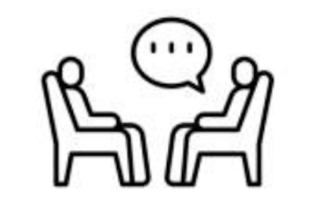Therapy: it’s time we challenge society’s warped perspective on what it means to seek help

Therapy has helped teenagers across the country tackle a multitude of issues, questions and emotions. Though some teens initially have reservations about seeking a therapist, many find that therapy is incredibly beneficial in helping them to become the best version of themselves.
Alright, I’ll just come right out and say it — I go to therapy. And it’s a good thing, too, because I desperately need it. But even so, I still hesitate to speak publicly about seeking mental health support. Why am I so ashamed to admit I get help?
According to The Substance Abuse and Mental Health Services Administration, 3.4 million teens across the United States are currently receiving specialty mental health services. This is a large number. But even so, society still paints a picture that those who go to therapy are “flawed.”
As someone who has gone to therapy since I was young, I have wrestled with a myriad of emotions ranging from embarrassment, to shame, and ultimately enlightenment. When my parents first told me I was to go to therapy and talk to a stranger about my issues, I immediately resented them as I was worried that I would be perceived as “weird.” At seven years of age, I was already aware of the stigmatization of therapy.
The pressure to seem “perfect” to the outside world is so pervasive amongst teens, particularly those of high socioeconomic statuses, that it leaves no space for self-preservation.
— Mia Bomback '25
What I couldn’t possibly fathom at seven was that needing help is normal. Considering the fact that most people have felt something other than happiness at some time or another so going to therapy doesn’t mean you are “weak,” “incapable” or “weird,” it just means you are human, Tara Covais Varsov, LCSW illustrates.
The pressure to seem “perfect” to the outside world is so pervasive amongst teens, particularly those of high socioeconomic statuses, that it leaves no space for self-preservation. Even more shocking, is the overwhelming notion that there must be a DSM diagnosis to justify seeking therapy.
Charlotte Berger, LPC, LMHC, owner of Pearl Counseling and Wellness, PLLC explains that a common misconception about therapy is that there has to be something wrong with you in order to qualify for therapy. This is not true. You don’t need a life crisis to occur in order to seek support or counseling. Therapy is for everyone.
Now, seven years later, at 14, I finally understand. Therapy is nothing to be ashamed of. In fact, I would not have gotten through the COVID-19 pandemic and online learning if not for years of counseling. While the false assumptions and uncomfortable stereotypes that have led me to keep my therapeutic journey a secret in the past are still as prevalent today, I hope that by being open about my experiences, I can help to minimize the negative connotations that surround the practice of therapy.

Paper News Editor Mia Bomback ’25 went with a friend to the Back-To-School issue layout and instantly fell in love with Inklings and the chaos that comes...



















































